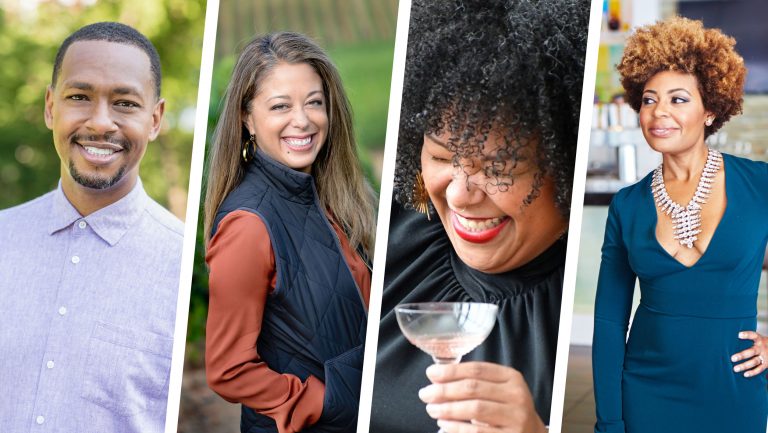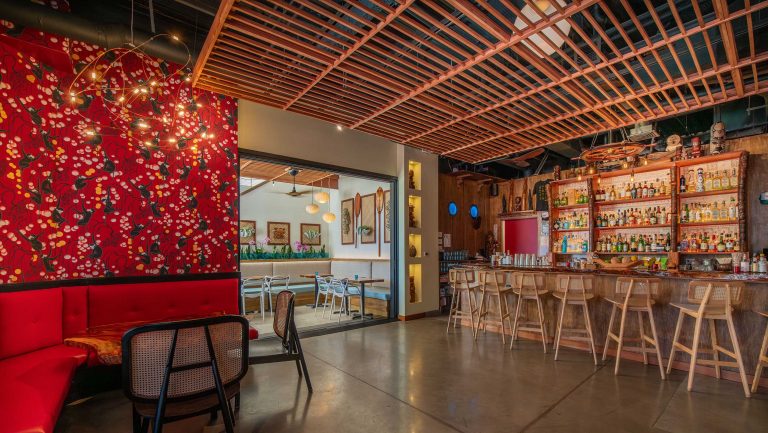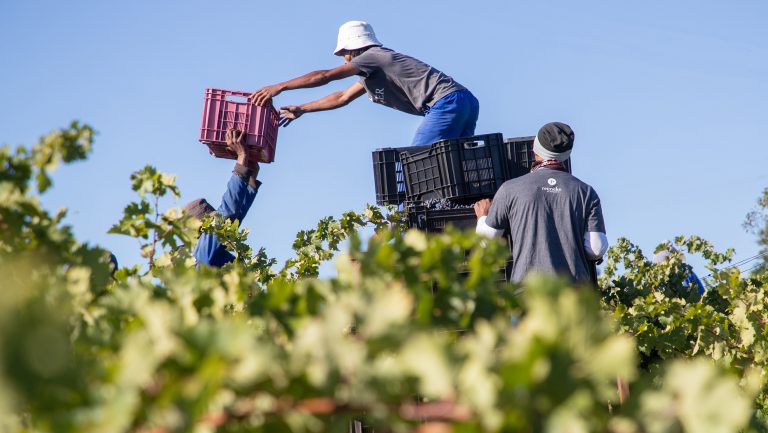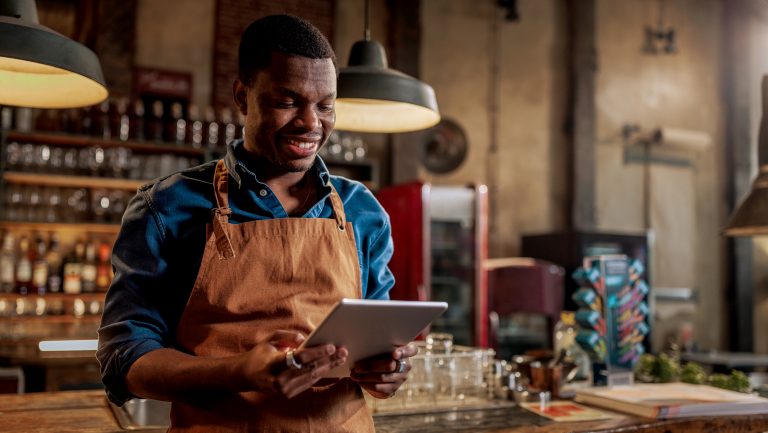More than a year ago, companies across the drinks industry launched diversity, equity, and inclusion (DEI) programs and scholarships with the goal of creating real, sustainable pathways to wine, spirits, and beer careers for BIPOC individuals.
But what has really changed in the drinks industry as a result of these DEI efforts? The reality is that creating a more inclusive industry takes time, and systemic change requires more than pledges and reallocation of funds. But thanks to the continued efforts of large companies and independent organizations alike, real change is happening.
“While there are things that brands can do right away to reflect diversity and inclusion, we must recognize consistent effort and attention being made, and accept that it could take five to 10 years before we really see how it truly impacts our industry,” says Samara Davis, the founder of Black Bourbon Society (BBS) who consults with large suppliers to offer guidance for hiring and developing diverse talent

Don’t miss the latest drinks industry news and insights. Sign up for our award-winning newsletters and get insider intel, resources, and trends delivered to your inbox every week.
Changing Corporate Culture
For long-lasting change to stick in the beverage alcohol industry, the companies with the largest financial stake need to become leaders advancing progress and recognize the correlation between a more diverse organization and a stronger bottom line. E. & J. Gallo, one of the largest family-owned wine companies in the U.S., has long made diversity and inclusion (D&I) one of its top priorities and stepped up efforts over the last 18 months.
“For our industry to grow, we have to reflect what America looks like today and what America will look like tomorrow. It is essential for our industry to adapt and evolve in order to be relevant to the next generation of alcohol beverage consumers,” says chief marketing officer Stephanie Gallo. “Diversity and inclusion encourage innovation and creativity, leading to a stronger company with better results.”
The company had already established the Gallo African American Network (GAAN) employee resource group and also has employee resource groups (ERGs) for its LGBTQ+, Asian, Latinx, and women communities, among others. At its core, GAAN helps guide the organization in establishing cultural fluency and works to create an environment that empowers Black employees and develops future leaders.
E. & J. Gallo also launched its Diversity & Inclusion Council in the summer of 2020 to hold themselves accountable to their D&I initiatives and connect them to their overall business goals and strategies.“The council is a cross-section of leaders from every aspect of Gallo’s business—whether it’s in wine supply, engineering, sales or marketing,” says Derek Epps, Gallo’s events and multicultural partnerships manager and director of outreach for GAAN.
According to Epps, the D&I Council has spent much of the last year setting solid foundations for progress, so far identifying opportunities to improve and invest in its D&I training and setting aside budgets for full-time resources that will continue to advance D&I work. Its first set of programs is set to launch in 2022.
“I think the two [corporate] partners wouldn’t be part of the program if they weren’t committed to change in some way because it’s not just about the three months that we’re there—it’s about what happens when we leave.” – Suhayl Ramirez, The Urban Grape Wine Studies Award recipient
Smaller wineries are also doing the work. In Oregon, the Willamette Valley Wineries Association formed the Diversity, Equity, Belonging, and Inclusion (DEBI) Task Force in early 2019 to advocate for DEBI opportunities for their members, as well as trade and consumer audiences of their programs. The task force wrote a DEBI pledge that wine businesses in the region could voluntarily opt in to, which outlines specific steps a business could take to diversify its culture.
“This is structured to reconsider hiring and training practices, supplier choices, and marketing imagery and narratives,” says Jessica Mozeico, the president and winemaker at Et Fille Wines. “The idea is that a wine business has some concrete areas to consider and resources to foster self-education and discussion of what we can do at work to have an impact.” While Mozeico says it’s too soon to evaluate the impact of the pledge, it has already guided her marketing and vendor choices.
“I recently hired a new photographer and new marketing consultant from underrepresented communities because, even though I am a small winery, where I put my dollars matters,” she says. “I also did a photo shoot with my family and a few club members because I wanted more faces like mine—Asians and biracial Asians—included in our marketing imagery because who we portray as our audience matters.”
Creating Inroads Through Hiring
Other companies have made financial contributions and spearheaded programs to support underrepresented groups both within and outside of the beverage space. Diageo joined the Congressional Historically Black Colleges and Universities (HBCU) Partnership Challenge earlier this year to advocate for the development of future Black leaders.
Davis and the Black Bourbon Society have consulted with several spirit brands to help them think holistically about the professional experiences people of color can bring to roles at wine and spirit companies. For instance, over the summer, BBS partnered with Jim Beam for the five-city “Open Door Tour” to support Black-owned bars and restaurants that were impacted by the pandemic. Over the course of six weeks, 1,200 people attended the events and over $78,000 was raised to support local organizations.
When beverage industry veterans Lia Jones, Rania Zayyat, Philana Bouvier, and Cara Bertone launched Be The Change job fair in October 2020, one of their primary goals was to facilitate job placements for people of diverse identities. Since then, Be the Change has held two virtual job fairs; the most recent one, held in April, had close to 400 attendees (about 42 percent of them in search of middle management positions), with 55 exhibitors including big companies like Jackson Family Wines, Moët Hennessy, and E. & J. Gallo, as well as smaller, family-owned operations like Scheid Family Wines and Deutsch Family Wine & Spirits.
Three people have been hired from the Be the Change job fairs, according to Bouvier, who is also the president of Demeine Estates, and while this represents progress, there’s more to do.
“Even through our process of executing the job fair, we’ve recognized that there are some gaps when it comes to candidates getting jobs and we had to ask ourselves, ‘Are HR professionals truly educated when it comes to DEI?’” she notes. “Rania, Lia, Cara and myself—we all came together with the mission to help others, but we’re also all working to figure out how to become better leaders and create more diversity, equity and inclusion within this industry in an authentic way.”
“This is systemic and generational change, and small changes will lead to big impact over time.” – Samara Davis, Black Bourbon Society
One of those hired from the job fairs was Juan Carlos Ruiz, who attended in December 2020; he is now a development manager for tequila brand Volcán De Mi Tierra, which is owned by Moët Hennessy. as a development manager for tequila brand Volcan De Mi Tierra in February 2021. Though Ruiz had experience working with high-end wines in fine dining, he had been struggling to transition out of restaurants and into the luxury supplier space.
“What I appreciated about the virtual job fair was getting my resume in front of the right people. Prior to it, I felt like it always got lost in the shuffle,” says Ruiz. “With Be the Change, I was able to speak one-on-one with someone about my very unique experience, and everyone I spoke to saw value in it, especially on the luxury side of things.”
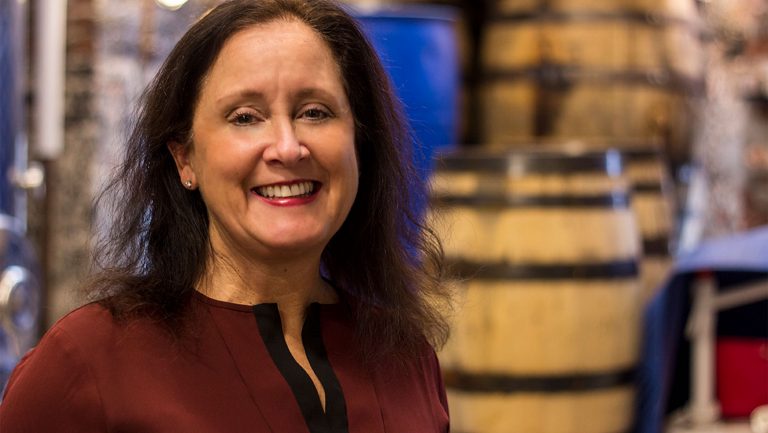
The Work of Independent Organizations
Beyond corporate culture, a slew of new, independent organizations have been created to create awareness for and offer financial, resource, and skills support to BIPOC industry members and aspirants, such as Black Wine Professionals, The Roots Fund, and Hispanics in Wine.
Scholarship and fellowship programs have become popular as well; independent wine shops The Urban Grape in Boston and Domestique Wine in Washington, D.C. each launched a fellowship program designed to disrupt the lack of diversity in wine in June 2020.
Suhayl Ramirez is currently wrapping up her year-long experience as an inaugural recipient of The Urban Grape Wine Studies Award for Students of Color, taking on paid internships in retail, distribution, and restaurants while undergoing education and mentorship. The opportunity has given Ramirez deeper insight into the wine industry and how she hopes to carve out the next chapter of her career.
“My favorite part of the experience has been how welcoming the entire industry has been to us,” she says. “The program partners have allowed me to embrace my strengths and welcomed feedback around what it means to create a diverse and equitable workplace.” It’s not lost on Ramirez that being one of the only Black women in the room comes with its share of courageous conversations.
The participation of the award program’s partners, M.S. Walker and Big Heart Hospitality, signals to Ramirez that larger drinks companies do want to support fundamental DEI change in the industry as a whole. “I think the two partners wouldn’t be part of the program if they weren’t committed to change in some way because it’s not just about the three months that we’re there—it’s about what happens when we leave,” Ramirez says.
These programs aren’t going away, either; Urban Grape and Domestique Wine have both launched year two of their fellowships, and the American Craft Spirits Association (ACSA) recently launched the STEPUP Foundation, a year-long internship program beginning in January 2022 for those who want to launch careers in the beverage industry. The inaugural class in the program will be announced and presented during ACSA’s annual convention in December.
“This is not a program to simply check a box—it is a full-immersion program with legs that will carry it for decades to come,” says Margie A.S. Lehrman, the CEO of ACSA. “By removing major impediments for participation, in that almost all expenses are paid plus the intern receives a generous living stipend, with a full year of real-world experience, we expect interns to be absorbed completely by the industry.”
While more brands and companies in the drinks industry are doing their part to be more inclusive, Black Bourbon Society’s Davis says that trade members and consumers alike should be aware that change isn’t instantaneous. “This is systemic and generational change, and small changes will lead to big impact over time,” she says. “Brands and consumers both have to be patient and be committed to the journey of diversity and inclusion.”

Dispatch
Sign up for our award-winning newsletter
Don’t miss the latest drinks industry news and insights—delivered to your inbox every week.


